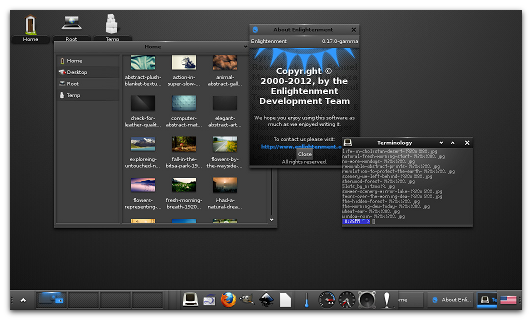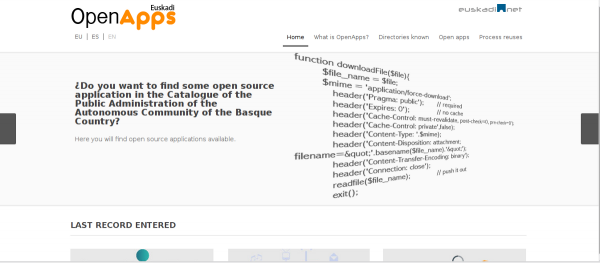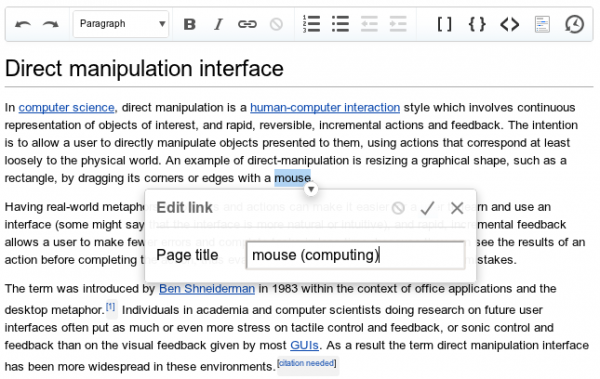 Yesterday evening the chief scribe attended the launch of Accessible Bristol down at Bristol’s City Hall (formerly the Counts Louse). Accessible Bristol’s aim is “bringing together digital and strategic knowledge to champion inclusion in Bristol and the South West”.
Yesterday evening the chief scribe attended the launch of Accessible Bristol down at Bristol’s City Hall (formerly the Counts Louse). Accessible Bristol’s aim is “bringing together digital and strategic knowledge to champion inclusion in Bristol and the South West”.
We were welcomed to the event Stephen Hilton, the council’s Director of Futures (the man with the best job title in the council, as Stephen himself declared. Ed.), who is visually impaired himself and a man who readily admits that “my phone can see better than I can”.
The first presentation was given by Léonie Watson of Nomensa, a Bristol-based digital agency which specialises in perfecting online user experience, web accessibility and web design, who is herself also visually impaired and has an impressive record of accessibility work, most notably with the W3C. Léonie’s presentation was entitled ‘Why bother with accessibility?’ and she talked passionately about digital inclusion and set accessibility in its historical context, drawing upon such sources as the suffragettes in Edwardian England and the equal rights struggles in 1960s USA. Perhaps the most salient points that came from Léonie’s presentation were that indexing websites for accessibility is common-sense and that making websites accessible improves them for everyone. In questions from the floor afterwards, the problems experienced by screen readers for the visually impaired with PDF files gave rise to lively discussion.
The “death by PowerPoint” baton was then passed to Joshua Marshall from the Cabinet Office’s Government Digital service, who talked about “Government for all” and the work being done on the .gov.uk domain. Joshua made no bones about the amount of work that needs to be done since very few .gov.uk sites currently comply with accessibility standards. However, he stressed that in future content that is not accessible will not be allowed on the .gov.uk domain. At the same time, the work of Joshua’s team has to accommodate the requirements of many central government staff who are still using Internet Explorer 6 (shudder. Ed.)! What impressed me about Joshua’s work was they’re using open source accessibility libraries and all their work is being posted to github. Since the new .gov.uk site went live as the replacement to direct.gov, Joshua said more than 1,000 small incremental changes had been made; this represents a new way of working for central government, which, like other large organisations, generally waits for a ‘waterfall moment’, implementing all changes in one great deluge.
After a short break, the event moved on to the final speaker of the evening, Tim Taylor of Lloyds Banking Group, whose talk was entitled “Getting accessibility right in a large organisation”, in this case the major bank for whom he works. Tim began by explaining that Lloyds had no consistent approach to accessibility before 2005, but all has changed since then and the bank is a member of the Business Disability Forum, which works to bring together business people, disabled opinion leaders and government to understand what needs to change if disabled people are to be treated fairly so that they can contribute to business success, society and economic growth. Tim also explained how accessibility was implemented for Lloyds Banking Group staff and their vital role within the organisation to assist its understanding of disability matters. It’s fashionable to bash bankers following the financial crisis of recent years, but the audience took Tim to task for their accessibility failures rather than their financial performance. Firstly, a wheelchair user explained how the design of cashpoints (ATMs) made absolutely no concessions to wheelchair users and were thus unusable by them. After this a visually impaired gentlemen highlighted a customer service failure stating, “Please tell your staff blind people don’t have driving licences!” He went on to explain he’d been asked this several times by different banks when trying to open an account and this bit of ignorance had made him decide to take his business elsewhere.
In summary, it was a most useful and enlightening event that was well worth attending. Hopefully this account will help Connecting Bristol’s Kevin O’Malley a flavour of what went on: Kevin had wanted to attend, but circumstances dictated otherwise, as he announced via Twitter:
Stuck on a flood diverted train and missing the fantastic speakers at #accessiblebrstl launch!
The presentations from the event are also available for download here in both PDF and PPTX formats.









 The Free Software Foundation Europe (FSFE)
The Free Software Foundation Europe (FSFE) 
 Our friends at
Our friends at 